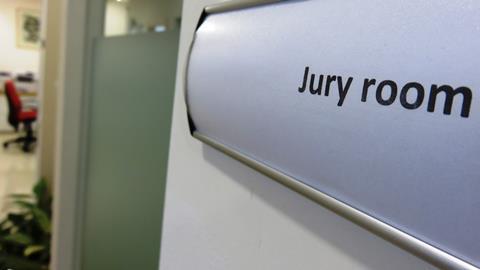Juries are considered by many, including legal professionals, to be the cornerstone of the criminal justice system. Part 1 of Sir Brian Leveson’s Independent Review of the Criminal Courtst made 45 recommendations, including limiting jury trials to cases that carry a sentence of three years or more. The main recommendations related to juries are that juries would not hear cases that carry a maximum custodial sentence of two years and the establishment of a Crown Court Bench Division (CCBD), a panel of 2 magistrates and one judge, to hear cases that carry a sentence of 2+ years. In these cases, a defendant could elect to have a jury trial however, it would be the judge’s decision whether this was granted. Leveson has also recommended stopping jury trials for serious fraud and some sexual offence cases.
Many are opposed to these recommendations and fear they will exacerbate existing problems. The Bar Council has even set out alternative recommendations to Leveson’s Review. These include diversion from the criminal courts, for example using educational programmes.
Opponents have argued that lack of resources is a major contributory factor to the current failings of the criminal court system. Implementing Leveson’s recommendations, for setting up CCBD’s, will require financial, staffing, and training resources, which may be better served by inputting into the existing system.
Worries have also been raised over offenders with mental health and addiction issues as they make up a large proportion of offenders who reoffend. There are concerns over whether their needs are best met by judge-alone trials. Additionally, a significant number of jury trials involve cases of domestic or sexual violence. Research has demonstrated how jury decisions involve victim-blame, rape myths and rape myth acceptance and how education about these myths is important to jury decision-making. Judges are likely to also subscribe to rape myths although less research has explored judicial decision-making in this area and this could impact fairness and public faith in the criminal justice system.
Read more
There are also questions over whether judges are best placed to hear and decide in all cases. Juries are founded on the idea of a trial of one’s peers. Very little is known or understood about how juries do this, but having a group of laypeople is seen to be representative and fair. Having judges hear and decide cases removes some of this representativeness as they are experienced legal professionals that are cognisant of the law and have heard a myriad of criminal cases. How this impacts their decision-making is not known and needs further exploration before implementing judge-alone trials.
All human decision-making is biased, and everyone brings with them their beliefs, attitudes, and previous experiences into the decision-making context. There has been research investigating juror bias and how that impacts their decision-making and how cognitive bias affects judges’ decision-making. Research has found that judges are in fact just as biased as juries. This arguably could be exacerbated when using new methods such as the CCBD as this involves a judge and two magistrates who presumably would discuss the case and reasons for their decision. Additionally, unlike juries, judges hear inadmissible evidence which could be highly prejudicial. How this impacts their decision-making needs to be investigated.
Having judge-alone trials also raises issues of diversity. This issue has been raised about juries and the impact on their decision-making. This could be exacerbated further in judge-alone trials as judges have been labelled the most socially exclusive group among Britain’s elite. Most (65%) are privately educated, compared with 7% of the general population. The majority are white, middle-aged men, with only 11% from an ethnic minority background. This means judges are a more homogeneous group than jurors and more research is needed to see how this impacts fair decision-making.
During the pandemic, some jury trials were halted and the impact on fairness is not known. Although the Leveson review attempts to address the current backlog of criminal cases, some have likened this to putting a plaster on a broken system rather than addressing the causes of the problems, and limiting jury trials is not the answer. Rather than address the issues, setting up CCBD’s and limiting jury trials shifts the burden from one place to another. Before adopting judge-alone trials, more research is needed into these decision-making processes and factors that impact them to ensure fair and informed criminal trials.
Sarah Lloyd is a lecturer at the University of Worcester
































3 Readers' comments